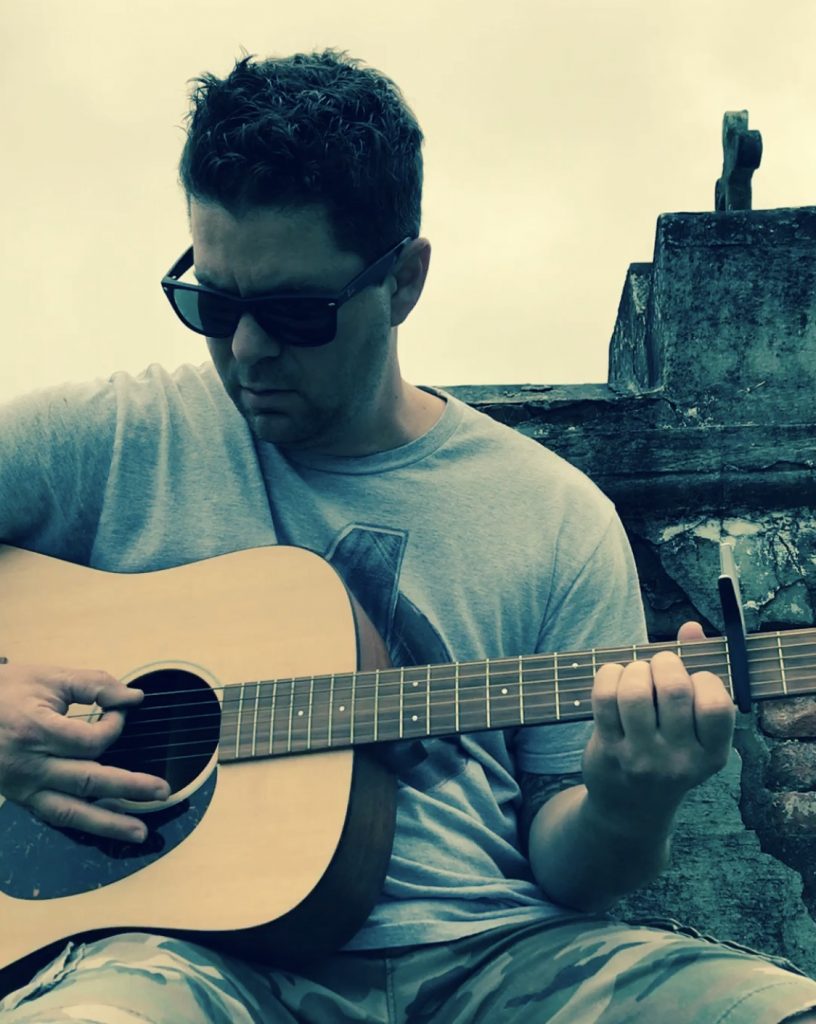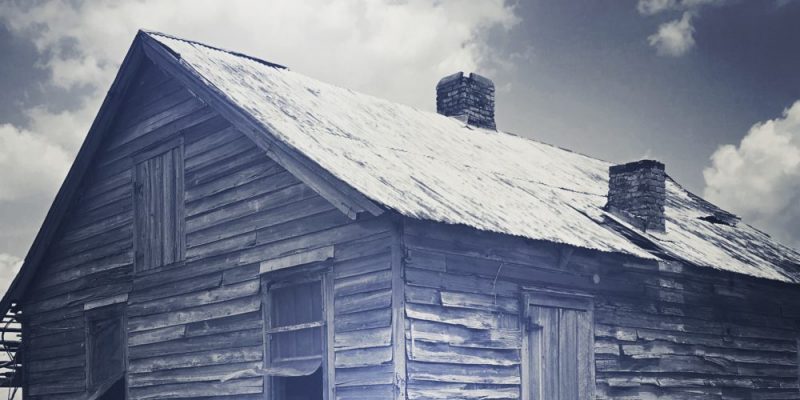1935 combines the raw vocal talent of Dale Cazenave and Dani Folse, with Cazenave singing the first verse and weaving a provocative tale of marriage, abuse, and death. Bright acoustic strings take the listener back to an age long past, referenced in the title and the chorus. Thick chords full of hopeful expectation drive the intro, intermingled with pauses and somber guitar licks. Cazenave’s deep, gravely voice calms and pacifies, like you’re riding down a long, empty highway under a star-speckled sky with Cazenave in the driver’s seat.
The folk-like Americana sound and simplicity of timbre makes the song easily accessible and familiar (particularly for Americans), throwing the listener immediately into the story as a passive observer – similar to the wife’s position in the first verse. The acoustic guitar-driven melody creates a certain tranquility juxtaposed to the threatening line – she disobeyed, now the beast will rise. The lyrics invite curiosity, creating a dark mystery surrounding the characters and the outcome of this rising beast, seemingly the husband. Folse lends her silvery feminine voice to the second verse, which centers on the wife’s perspective.

Images of violence permeate the song (Jaw still swollen from yesterday), giving darkness to the initially lighthearted acoustic riffs. The singers come together to harmonize for the chorus, composing a rich blend of high and low notes – a certain auditory push and pull also reflected in the relationship between the lyrical speakers. The lyrics comment on the state of normalized abuse toward women in 1935, which ain’t good, to quote Cazenave (ain’t really should be acceptable in the English language, notice how poetically ain’t fits into the song as opposed to added syllable contained in isn’t).
The subject matter still compels us in today’s society as women still struggle for equality, not only in the sense of pay but also within the current consciousness of contemporary society, still pervaded by the vague sense that women are ‘other’ or ‘less than’ men. Our world and our minds still feel the effects of thousands of years of patriarchy, a reflection that can be seen in multiple religions and many current marriages.
The female speaker breaks out of her submission through poisoning her abuser, another act of violence. Cazenave’s voice echoes and rises as the demons in her head started dancing around, a visual of the cyclical nature of violence. Violence is a conundrum, used to uproot oppression yet often unintentionally begetting more violence and oppression. However, seen through the lens of the U.S. Revolutionary War and the countless slave revolts that eventually led to more equal civil rights in America (at least on paper), violence appears to be the quickest solution in spawning extraordinary change. Destruction breeds creation, illustrated by the natural world we live in along with the unnatural world we’ve created (we can’t build great structures without destroying the structures already present). Shown in 1935 and countless ages throughout human history, frequently tyrants must fall in order to shape a better society for all.
Stream the music on Spotify.

